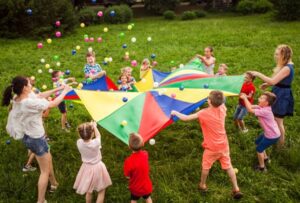Many parents tell me the same thing every year: as soon as summer break is over, their kids forget everything. Getting back into school mode is tough, and they just can't seem to catch up.
If that sounds familiar, you’re not alone.
Take this story from a mom: “As soon as summer break starts, my daughter goes into full vacation mode. Two months without touching a book—by the time school starts, even basic math is a struggle.”
This is a real and common issue known as the “Summer Slide”—a learning loss that can happen during long school breaks.
Studies show that students may lose up to 2.6 months of math skills over the summer, and some may forget up to 39% of what they learned during the school year. Younger children in grades 1 to 5 are especially at risk. One study found that students in grades 3 to 5 lost about 20% of their reading progress and 27% of their math progress over the summer.
But the good news is: with just a little planning, you can help your child stay sharp—and even have fun doing it.
Here are 5 simple and stress-free ways to prevent the summer slide:
1. Set a Daily Learning Time
You don’t need a full lesson plan—just 30 minutes to an hour a day can keep kids in the habit of learning. This can include reading, simple writing, math puzzles, or educational games.
Parent tip: Try to keep it light and consistent. Morning or early afternoon works best when kids are fresh and focused.
2. Make Reading Fun and Flexible
Learning doesn’t have to feel like homework. Let your child choose what they like—comic books, fun stories, even cookbooks! The goal is to build a love of reading, not just to finish a checklist.
Parent tip: Set up a cozy reading nook and enjoy 10 minutes of reading time together each day.
3. Explore Digital Tools and Online Resources
From free learning apps to video lessons and printable activities, digital resources can make learning interactive and fun. There are also virtual camps and programs designed for all ages and interests.
Parent tip: Choose tools that match your child’s level and curiosity—not just their grade.
4. Join a Summer Camp or Learning Program
Many communities offer day camps with educational themes, hands-on science or art projects, and even part-time tutoring. These are great for keeping kids engaged and social during the break.
Parent tip: Look for camps that blend play and learning, rather than strictly academic ones.
5. Try Thinking Games and Brain-Boosting Activities
Learning doesn’t only happen at a desk. Games like puzzles, building blocks, memory cards, and logic challenges are great for growing brains. Play together—it’s fun and builds family bonds.
Parent tip: Keep board games, LEGO sets, and craft kits within reach. They spark creativity and critical thinking.
Final Thoughts
Preventing the summer slide doesn’t mean turning your home into a school. A little structure, a lot of fun, and staying curious can go a long way. Help your child explore, create, read, and grow—without the stress.
“Learning should be fun—and summer is the perfect time to remind kids that growing their minds can happen anywhere.”













